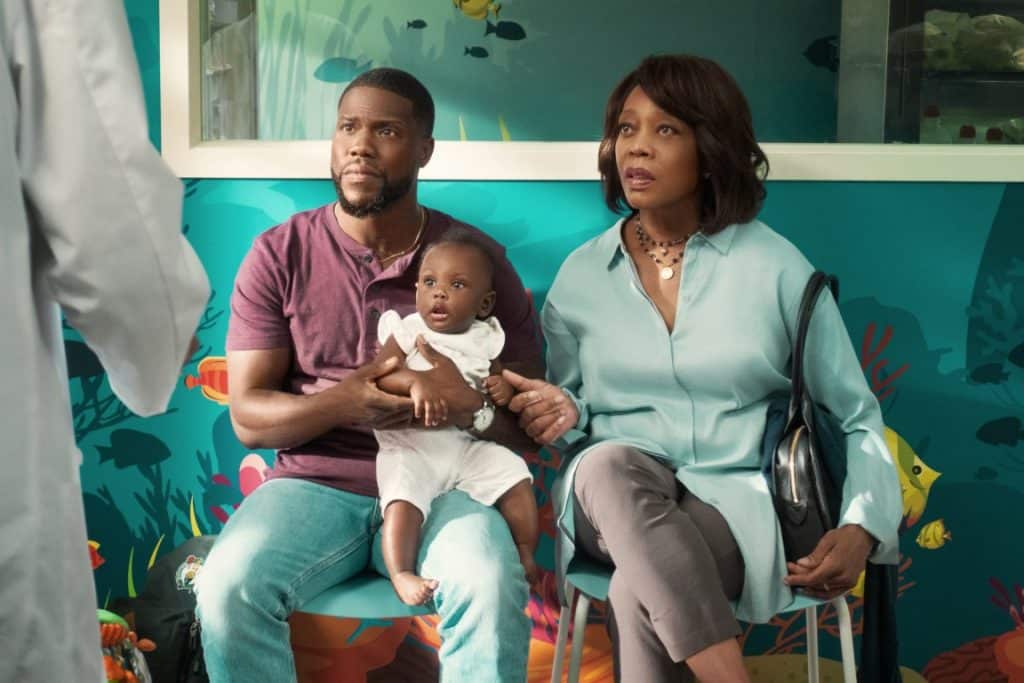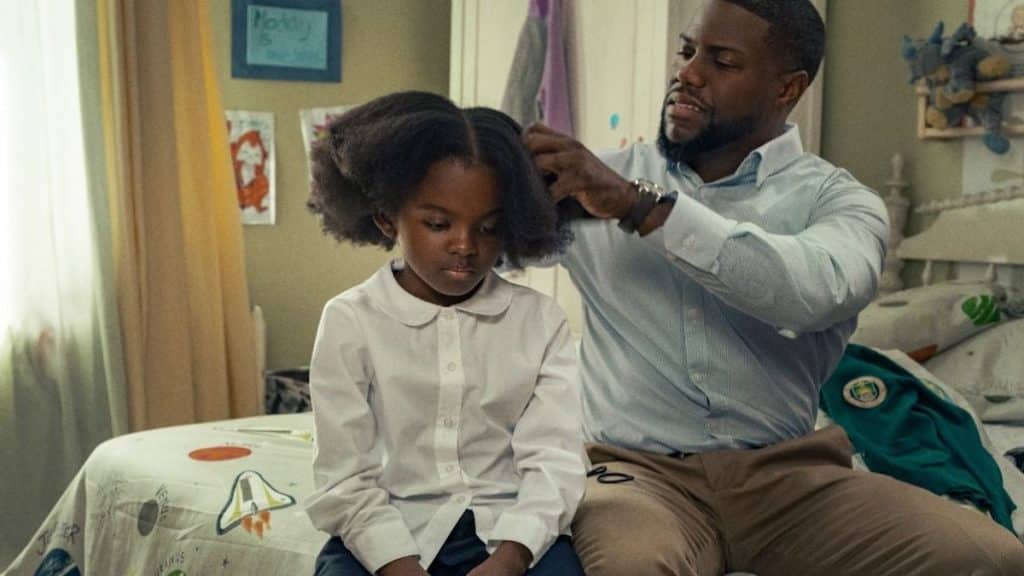Read also:
How to Watch FX Live Without CableHow To Watch AMC Without CableHow to Watch ABC Without CableHow to Watch Paramount Network Without CableKevin Hart dips his toes into dramedy, but the film can’t quite overcome a weak script and a heaping helping of unearned melodrama.
Adapted from Matthew Logelin’s Two Kisses for Maddy: A Memoir of Loss and Love, written/directed by Paul Weitz, and co-written by Dana Schwartz, Fatherhood follows Matt (Kevin Hart), a father forced to raise his daughter alone when his wife Liz (Deborah Ayorinde) dies just after giving birth. Hart’s first big foray into dramatic acting has some heartwarming moments but is too bogged down by an awkward script and lack of dramatic weight.
Fatherhood’s problems — which carry through to the rest of the film — start in the opening, a tonally-dissonant montage interspersing Liz’s funeral and flashbacks to the circumstances of her death. During the funeral, the film peppers in a series of bad jokes courtesy of Matt’s friends Jordan (Lil Rel Howery) and Oscar (Antony Carrigan), who ramble about Matt‘s past failures and how that relates to the funeral.
Making things worse are the flashbacks, drip-feeding us the sweeping drama of the birth of their child and Liz’s subsequent death at the same time It feels as if no one involved could decide the exact tone of the scene. The lines suggest dark comedy, but the performances are straight-laced and morose, which creates a jarring dissonance.

Hart’s clearly trying for a more serious, dramedic performance here, but he can’t sell the heartache Weitz presents him with, no matter how much Rupert Gregson-Williams’ overwrought score tries to bash you over the head with the emotions of the scene. Liz, for her part, has next to no characterization, a blank slate on which other characters can project their emotions. (Ayorinde never really gets the chance to make the character her own.)
While Fatherhood does improve from here, that sense of underwhelming drama and creaky humor sustains the rest of the piece.
But as we move past the drama and into the relationship between Matt and his daughter Maddy, Fatherhood begins to settle into Hart’s comfort zone. Hart plays the role of clueless father with levity and a certain level of earnestness. He works best when he isn’t being forced into grandiose speeches and can focus on being a silly dad who shoots diapers into the bin via a basketball hoop.
When Maddy gets older (played by Melody Hurd) and can vocalise her own thoughts, she brings a lot to the table. Hurd is adorable and witty, with some fantastic comedic timing. When she and Hart are together, their repartee is lively and heartwarming; they relax into their roles and relationships in ways that overcome the wooden script.
Fatherhood is about as forgettable as its title.
Those same struggles apply to the broader cast, who have to overcome the script’s deep limitations. Howery, Carrigan and Matt’s boss (Paul Reiser) are stuck with some abysmal gags: in one scene, Howery awkwardly flirts with Matt’s mother Anna (Thedra Porter) and mother-in-law Marion (Alfre Woodard) at the same time, and the joke never really expands beyond that limp premise. However, when the script allows the characters to drop the contrivances and be silly together, their natural charisma can eke out some genuine laughs – like when Matt, Maddy, Jordan, and Oscar play poker together with cookies as chips.
Unfortunately, the women never really get the chance to do that. The film relegates the ever-reliable Woodard to playing the evil stepmother, her characterization constantly shifting to suit the plot. She plays it as best she can. When one character taunts, “You catch more flies with honey than vinegar,” she shoots back: “You’d catch more with a fly swatter!” She has no real internal life beyond Maddy. Porter, for her part, gets virtually no screen time and has nothing to her beyond a shallow picture of the endlessly kind single mother. Matt’s love interest Swan suffers from a similar problem; DeWanda Wise infuses her with a lot of personality and charm, but she lacks an interior life outside of the protagonist.

Fundamentally, a huge part of this film plays with the assumption that it’s unusual for a man to look after his child. But it never does anything to unpack that dynamic beyond a few flippant jokes. There’s also a hasty and underdeveloped subplot about how Maddy mostly wears boys’ clothes and gets picked on for that. The support from her father on this feels ironic, given Hart’s storied history with homophobia; as is, the subplot also feels more than a little out of place.
Another element that makes Fatherhood feel incomplete is the racialized nature of its adaptation. Logelin’s book is about the experiences of a white man, and while some aspects of fatherhood are universal, the experiences of a Black single father would likely be materially different. This is especially true given how (through a multitude of factors) Black people are far less likely to follow conventional American family structures. Fatherhood seemingly refuses to engage with these ideas, which makes its status as an adaptation of “a true story” ring false.
Fatherhood is about as forgettable as its title. Kevin Hart can’t prove that he has dramatic chops, and the script hampers a cast full of talented actors. The redeeming and sweet moments between the cast still make it watchable but don’t expect anything better than a middling Hallmark movie.
Fatherhood is currently streaming on Netflix.